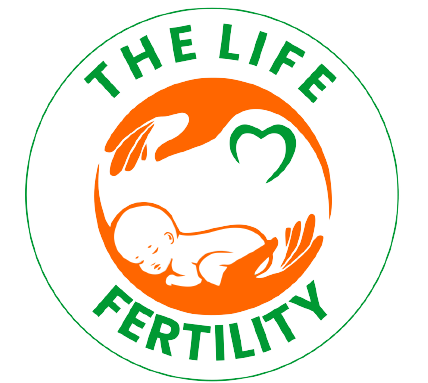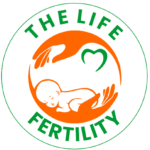Introduction
Fertility issues in females are a common concern that affects millions of women worldwide. Understanding the underlying causes and potential solutions is essential for those hoping to conceive.
Fertility issues in females encompass a range of medical and lifestyle factors that can hinder a woman’s ability to conceive. From polycystic ovary syndrome (PCOS) to endometriosis, understanding these conditions and their impact is crucial for those looking to start a family.
In this article, we delve into the various factors that can impact female fertility, from hormonal imbalances to lifestyle choices, and explore effective treatments and strategies to enhance reproductive health.
Table of Contents
Overview of Fertility Issues in Females
Fertility issues in females refer to a range of conditions and factors that can impede a woman’s ability to conceive and maintain a pregnancy. These issues are surprisingly common, affecting approximately 10-15% of couples globally.
The causes can be multifaceted, involving hormonal imbalances, structural problems within the reproductive system, and lifestyle factors. Conditions such as polycystic ovary syndrome (PCOS), endometriosis, and uterine fibroids are some of the prevalent medical conditions that contribute to female infertility. Additionally, age plays a critical role in fertility, with the likelihood of conception decreasing as a woman ages.
Understanding the breadth and complexity of fertility issues in females is essential for anyone facing challenges in conceiving. Each condition can present differently and may require tailored approaches for diagnosis and treatment.
By gaining a thorough understanding of these issues, women and their partners can take proactive steps toward addressing potential problems, thereby enhancing their chances of achieving a successful pregnancy. This knowledge empowers them to make informed decisions about their reproductive health and seek appropriate medical advice and interventions.
Importance of Understanding Causes and Solutions
The importance of understanding the causes and solutions for fertility issues in females cannot be overstated. Identifying the root causes of infertility is the first crucial step toward finding effective treatments and improving reproductive outcomes.
For instance, hormonal imbalances might be managed with medication, while structural issues like blocked fallopian tubes may require surgical intervention. By pinpointing the specific cause, healthcare providers can offer personalized treatment plans that address the unique needs of each patient.
Moreover, being informed about the solutions to fertility issues in females helps in reducing the emotional and psychological stress associated with infertility. Knowledge about available treatments, such as in vitro fertilization (IVF) and intrauterine insemination (IUI), along with lifestyle modifications like diet and exercise, provides hope and tangible steps that couples can take.
Understanding these options fosters a proactive approach, enabling women to make lifestyle changes that can improve their fertility and overall health. In summary, a comprehensive understanding of the causes and solutions for fertility issues is essential for navigating the complexities of infertility and achieving reproductive success.
Common Causes of Fertility Issues in Females
Understanding the common causes of fertility issues in females is vital for diagnosing and addressing infertility. These issues can arise from various medical, lifestyle, and environmental factors.
Below are some of the primary contributors to female infertility:
Hormonal Imbalances
Hormonal imbalances are one of the primary reasons of reproductive difficulties in females. Hormones like estrogen and progesterone play a critical role in regulating the menstrual cycle and ovulation.
When these hormones are out of balance, it can result in irregular or absent menstrual periods, making it difficult for women to conceive. Conditions such as thyroid disorders and hyperprolactinemia also fall under this category, further complicating the reproductive process.
Polycystic Ovary Syndrome (PCOS)
Polycystic Ovary Syndrome (PCOS) is a common endocrine disorder that significantly impacts fertility. Women with PCOS often have several tiny cysts on their ovaries, high levels of androgens, and insulin resistance.
These factors can lead to irregular ovulation or anovulation, where ovulation does not occur at all, thus contributing to fertility issues in females. Managing PCOS often requires a combination of lifestyle changes, medications, and sometimes assisted reproductive technologies (ART).
Endometriosis
Endometriosis is another prevalent cause of fertility issues in females. This condition occurs when tissue similar to the lining of the uterus grows outside the uterine cavity, often on the ovaries, fallopian tubes, and other pelvic structures.
This ectopic tissue can cause inflammation, scarring, and adhesions, which can obstruct the reproductive organs and impede conception. Treatment for endometriosis may include medication to manage symptoms and surgical interventions to remove the ectopic tissue.
Uterine Fibroids
Non-cancerous growths that develop in or around the uterus are called uterine fibroids. They can vary in size and number and can cause fertility issues in females by distorting the uterine cavity, blocking the fallopian tubes, or interfering with the implantation of an embryo.
Depending on their size and location, fibroids may be treated with medication, minimally invasive procedures, or surgical removal to improve fertility outcomes.
Age-Related Factors
Age is a critical factor in female fertility. As women age, the quantity and quality of their eggs decline, leading to increased difficulty in conceiving. When a woman is born, her supply of eggs is finite and eventually runs out.
Fertility issues in females become more pronounced after the age of 35, with a significant drop in fertility potential and a higher risk of miscarriage and chromosomal abnormalities in pregnancies.
Lifestyle and Environmental Factors
Lifestyle and environmental factors also play a significant role in fertility issues in females. Poor diet, lack of exercise, smoking, excessive alcohol consumption, and high levels of stress can negatively impact reproductive health.
Environmental toxins such as pesticides, heavy metals, and endocrine-disrupting chemicals can also affect hormonal balance and reproductive function. Adopting a healthy lifestyle and minimizing exposure to harmful substances can improve fertility and overall health.
Diagnosing Female Fertility Issues
Diagnosing fertility issues in females involves a comprehensive approach that includes a variety of tests and examinations. Identifying the precise reason of infertility is essential to creating a successful treatment strategy. Here are some essential techniques utilized throughout the diagnosis procedure:
Medical History and Physical Examination
The first step in diagnosing fertility issues in females is taking a detailed medical history and conducting a thorough physical examination. The medical history includes questions about menstrual cycle regularity, previous pregnancies, sexual habits, and any known medical conditions or surgeries.
A physical examination may involve a pelvic exam to check for abnormalities in the reproductive organs. This initial assessment helps identify any obvious issues and guides further diagnostic testing.
Hormone Testing
Hormone testing is essential in diagnosing fertility issues in females, as hormonal imbalances can significantly affect reproductive health. Blood tests are used to measure levels of key hormones such as follicle-stimulating hormone (FSH), luteinizing hormone (LH), estrogen, progesterone, and thyroid hormones.
These tests can help determine if hormonal dysfunction is interfering with ovulation and overall fertility. For example, elevated FSH levels may indicate diminished ovarian reserve, while abnormal thyroid levels can impact menstrual regularity and ovulation.
Ultrasound and Imaging Tests
Ultrasound and other imaging tests play a vital role in diagnosing fertility issues in females. A transvaginal ultrasound is commonly used to visualize the ovaries, uterus, and fallopian tubes, helping to identify conditions such as polycystic ovary syndrome (PCOS), uterine fibroids, and ovarian cysts.
Hysterosalpingography (HSG) is another imaging test that involves injecting a contrast dye into the uterus and fallopian tubes to check for blockages or structural abnormalities. These imaging techniques provide detailed information about the reproductive organs and can guide further treatment decisions.
Laparoscopy
Laparoscopy is a minimally invasive surgical procedure used to diagnose and sometimes treat fertility issues in females. During a laparoscopy, a small camera is inserted through a tiny incision in the abdomen, allowing the doctor to directly observe the pelvic organs.
This procedure is particularly useful for diagnosing endometriosis, pelvic adhesions, and other conditions that may not be visible through non-invasive imaging tests. If abnormalities are found, the surgeon can often correct them during the same procedure, improving the chances of conception.
Genetic Testing
Genetic testing can be an important component in diagnosing fertility issues in females, especially when there is a history of recurrent miscarriages or unexplained infertility. Genetic tests can identify chromosomal abnormalities, gene mutations, and other inherited conditions that may impact fertility.
For example, karyotyping can detect chromosomal translocations, while specific gene tests can identify mutations associated with conditions like cystic fibrosis. Understanding the genetic factors involved can help in developing personalized treatment plans and assessing the risk of passing on genetic disorders to offspring.
In summary, diagnosing fertility issues in females requires a multifaceted approach, utilizing medical history, hormone testing, imaging, laparoscopy, and genetic testing. Each method provides critical insights that help healthcare providers determine the underlying causes of infertility and tailor effective treatment strategies.
Treatment Options for Female Infertility
Treating fertility issues in females involves various medical approaches tailored to address the underlying causes of infertility. Here are a few of the main forms of therapy that are available:
Medications
Medications are often the first line of treatment for fertility issues in females. Hormonal therapies can correct imbalances that disrupt ovulation and menstrual cycles. For instance, medications like Clomiphene Citrate stimulate ovulation by encouraging the release of hormones necessary for egg development.
Other hormonal treatments, such as Metformin, are used for conditions like polycystic ovary syndrome (PCOS) to improve insulin sensitivity and reduce androgen levels, which can enhance ovulation and improve fertility outcomes.
Ovulation Induction Drugs
Ovulation induction drugs are specifically designed to stimulate the ovaries to produce multiple eggs in one cycle, increasing the chances of conception. Commonly used ovulation induction drugs include Clomiphene Citrate, Letrozole, and Gonadotropins.
These medications are used in cases where hormonal imbalances or anovulation (lack of ovulation) are identified as causes of fertility issues in females. Throughout therapy, monitoring with blood tests and ultrasounds is crucial to prevent side effects such as ovarian hyperstimulation syndrome (OHSS).
Surgical Interventions
Surgical interventions can effectively address certain fertility issues in females, especially those involving structural abnormalities. Surgery may be required to remove obstructions, correct anatomical defects, or treat conditions like endometriosis and fibroids.
These procedures can restore normal reproductive function and improve the chances of natural conception.
Laparoscopic Surgery
Laparoscopic surgery is a minimally invasive technique used to diagnose and treat various fertility issues in females. Through small incisions, a laparoscope (a thin tube with a camera) is inserted into the abdomen, allowing the surgeon to view and operate on the reproductive organs.
This procedure is particularly beneficial for treating endometriosis, removing adhesions, and correcting tubal blockages. The minimally invasive nature of laparoscopy usually results in shorter recovery times and less postoperative pain compared to traditional open surgery.
Hysteroscopic Surgery
Hysteroscopic surgery involves the insertion of a hysteroscope through the cervix into the uterus, enabling the surgeon to diagnose and treat intrauterine conditions without external incisions.
This procedure is useful for removing uterine polyps, fibroids, and scar tissue, and for correcting congenital abnormalities like septate uterus. Hysteroscopic surgery can significantly improve the uterine environment, thereby enhancing fertility and the chances of successful implantation and pregnancy.
Assisted Reproductive Technologies (ART)
A variety of techniques are included in assisted reproductive technologies (ART) that help achieve pregnancy. These advanced techniques are used when other treatments have not been successful or are not suitable for the specific fertility issues in females. ART procedures are highly specialized and require the expertise of fertility specialists.
In Vitro Fertilization (IVF)
In Vitro Fertilization (IVF) is one of the most well-known and effective ART procedures for treating fertility issues in females. In vitro fertilization (IVF) involves removing eggs from the ovaries and fertilizing them with sperm in a lab. T
he uterus is subsequently filled with the resultant embryos. IVF is particularly useful for women with blocked fallopian tubes, severe endometriosis, or unexplained infertility. It also offers the possibility of genetic testing on embryos before implantation, which can prevent the transmission of genetic disorders.
Intrauterine Insemination (IUI)
Intrauterine Insemination (IUI) is a less invasive ART procedure that involves placing sperm directly into the uterus around the time of ovulation. By increasing the quantity of sperm that enters the fallopian tubes, this method improves the likelihood of conception.
Couples with cervical mucous issues, unexplained infertility, or moderate male factor infertility frequently utilize IUI. It can be combined with ovulation induction drugs to further improve the chances of conception.
These treatment options, ranging from medications to advanced surgical and ART procedures, provide a comprehensive approach to addressing the diverse causes of fertility issues in females. By tailoring treatments to the specific needs and conditions of each patient, healthcare providers can significantly improve the likelihood of successful conception and pregnancy.
Lifestyle Changes to Improve Fertility
Adopting a healthy lifestyle can play a significant role in addressing fertility issues in females. Simple yet effective changes in daily habits can enhance reproductive health and improve the chances of conception. Here are some important things to consider:
Nutrition and Diet
Nutrition and diet are fundamental components in improving fertility issues in females. Consuming a balanced diet rich in vitamins, minerals, and antioxidants supports overall reproductive health. Foods high in folic acid, such as leafy greens, citrus fruits, and fortified cereals, are particularly beneficial as they promote healthy ovulation and reduce the risk of birth defects.
Omega-3 fatty acids found in fish, flaxseeds, and walnuts help regulate hormone levels and reduce inflammation. Limiting the intake of processed foods, refined sugars, and trans fats is also crucial, as these can negatively affect hormonal balance and ovarian function.
Exercise and Physical Activity
Regular exercise and physical activity are vital for maintaining a healthy weight, which is closely linked to fertility. Both obesity and being underweight can lead to hormonal imbalances that affect ovulation. Engaging in moderate exercise, such as walking, swimming, or yoga, can improve insulin sensitivity, reduce stress, and promote overall well-being.
However, it is important to avoid excessive exercise, as it can lead to a decrease in estrogen levels and disrupt the menstrual cycle, exacerbating fertility issues in females. Finding a balance is key to supporting reproductive health.
Stress Management
Stress management is crucial when addressing fertility issues in females. Prolonged stress might throw off the delicate hormonal balance required for conception and ovulation. Stress management methods include gradual muscular relaxation, deep breathing techniques, mindfulness, and meditation. Engaging in hobbies, spending time in nature, and seeking support from friends, family, or professional counselors can also be beneficial. Reducing stress not only improves overall health but also creates a more favorable environment for conception.
Avoiding Environmental Toxins
Avoiding environmental toxins is another important aspect of managing fertility issues in females. Exposure to harmful chemicals found in pesticides, plastics, personal care products, and household cleaners can interfere with hormonal balance and reproductive function. Opting for organic foods, using natural cleaning products, and avoiding plastics that contain bisphenol A (BPA) can reduce the risk of toxin exposure.
Additionally, minimizing the use of cosmetics and skincare products that contain parabens and phthalates can further support reproductive health. Taking proactive steps to reduce exposure to environmental toxins can enhance fertility and improve overall well-being.
Incorporating these lifestyle changes can significantly impact fertility issues in females, providing a natural and holistic approach to enhancing reproductive health. By focusing on nutrition, exercise, stress management, and avoiding environmental toxins, women can create a healthier foundation for conception and pregnancy.
Alternative and Complementary Therapies
Alternative and complementary therapies can provide additional support for women dealing with fertility issues. These therapies often focus on enhancing overall well-being and addressing specific reproductive health concerns through natural and holistic approaches. Here are some effective options:
Acupuncture
Acupuncture is a traditional Chinese medical procedure that includes placing tiny needles into particular places on the body to promote healing and balance. This therapy has gained popularity for its potential benefits in treating fertility issues in females. Acupuncture is said to lessen stress, control hormone levels, and enhance blood flow to the reproductive organs.
Several studies suggest that acupuncture can enhance the effectiveness of conventional fertility treatments, such as in vitro fertilization (IVF), by improving the quality of the endometrium and increasing the likelihood of successful implantation. Women seeking natural ways to boost their fertility may find acupuncture to be a valuable addition to their treatment plan.
Herbal Remedies
For decades, herbal medicines have been utilized to treat a wide range of health concerns, including infertility. Many herbs are believed to support reproductive health by balancing hormones, improving ovarian function, and enhancing overall well-being. Commonly used herbs for fertility issues in females include Vitex (chasteberry), which is known to regulate menstrual cycles and stimulate ovulation, and Maca root, which can boost energy levels and hormonal balance.
It is crucial to consult with a healthcare provider or a qualified herbalist before starting any herbal regimen, as certain herbs can interact with medications or have contraindications based on individual health conditions.
Mind-Body Techniques
Mind-body techniques, such as meditation, yoga, and guided imagery, can play a significant role in managing fertility issues in females by reducing stress and promoting relaxation. Prolonged stress can interfere with ovulation and hormonal balance, making conception more difficult.
Practices like mindfulness meditation and yoga help reduce cortisol levels, enhance emotional well-being, and create a more favorable environment for conception. Guided imagery and visualization exercises can also support fertility by encouraging a positive mindset and reducing anxiety related to fertility treatments. Incorporating these mind-body techniques into daily routines can improve overall health and increase the likelihood of successful pregnancy.
Alternative and complementary therapies offer a holistic approach to managing fertility issues in females. By integrating practices like acupuncture, herbal remedies, and mind-body techniques into their health regimen, women can enhance their reproductive health and increase their chances of conceiving. These therapies provide a natural complement to conventional medical treatments, supporting women on their fertility journey.
Emotional and Psychological Support
Dealing with fertility issues in females can be an emotionally challenging experience, often leading to feelings of frustration, sadness, and anxiety. Emotional and psychological support is crucial in navigating this difficult journey. Here are some ways to manage the emotional impact of infertility:
Coping with Infertility
Coping with infertility involves acknowledging and addressing the complex emotions that come with the inability to conceive. It’s critical to give oneself permission to grieve and deal with these emotions.
Practices such as journaling, mindfulness, and relaxation techniques can help manage stress and emotional turmoil. Consulting with a therapist who specializes in infertility might offer a secure environment for discussing these feelings and creating coping mechanisms. Understanding that it is normal to experience a range of emotions can also help women feel less isolated and more empowered to handle fertility issues in females.
Support Groups and Counseling
Support groups and counseling offer vital resources for women dealing with fertility issues. As members of a support group have comparable experiences and difficulties, joining one may foster a sense of understanding and camaraderie. These groups offer emotional support, practical advice, and a platform to express feelings without judgment.
Professional counseling, whether individual or couples therapy, can also be beneficial. Therapists can help address the emotional strain of infertility, improve communication between partners, and provide strategies to cope with the stress of treatments. Both support groups and counseling play an essential role in managing the psychological impact of fertility issues in females.
Building a Supportive Network
Building a supportive network is essential for women facing fertility issues. This network can include friends, family, healthcare providers, and others who understand the emotional and physical challenges of infertility.
Open communication with loved ones about the struggles and needs can foster empathy and support. Participating in infertility-focused social media groups and online forums can also yield beneficial contacts and information. A strong support network provides encouragement, reduces feelings of isolation, and helps women navigate the complexities of fertility treatments with a sense of companionship and solidarity.
Emotional and psychological support is a critical aspect of managing fertility issues in females. By developing effective coping mechanisms, seeking support from groups and counseling, and building a robust support network, women can better handle the emotional challenges of infertility. These strategies not only improve mental well-being but also enhance the overall fertility journey, making it a more positive and hopeful experience.
Preventive Measures and Long-term Health
Taking preventive measures and focusing on long-term health is essential for addressing fertility issues in females. By adopting proactive approaches, women can improve their reproductive health and reduce the risk of infertility. Here are some key strategies:
Regular Health Check-ups
Regular health check-ups are crucial for the early detection and management of fertility issues in females. Routine visits to a healthcare provider help monitor overall health and identify potential problems before they become significant. Annual gynecological exams, including pelvic exams and Pap smears, can detect abnormalities such as fibroids, cysts, or infections that may impact fertility.
Additionally, discussing any changes in menstrual cycles or reproductive concerns with a doctor can lead to early interventions, improving the chances of maintaining good reproductive health.
Monitoring Reproductive Health
Monitoring reproductive health involves being aware of one’s menstrual cycle and any changes that may indicate potential fertility issues in females. Tracking ovulation, cycle length, and symptoms can provide valuable insights into hormonal balance and ovulatory patterns.
Tools such as ovulation predictor kits, basal body temperature charts, and menstrual tracking apps can help women understand their fertility windows and identify irregularities. Regularly monitoring reproductive health allows for timely medical consultations and interventions if any issues are detected, promoting better long-term fertility outcomes.
Future Fertility Preservation Options
Considering future fertility preservation options is important for women who may face fertility issues in females due to age, medical conditions, or lifestyle choices. Options such as egg freezing and embryo freezing provide opportunities to preserve reproductive potential for later use.
These techniques are particularly beneficial for women undergoing treatments like chemotherapy, which can affect ovarian function, or for those who choose to delay childbearing for personal or professional reasons. Consulting with a fertility specialist about preservation options can help women make informed decisions about their reproductive future and mitigate potential fertility challenges.
Focusing on preventive measures and long-term health is key to managing and preventing fertility issues in females. Regular health check-ups, vigilant monitoring of reproductive health, and exploring fertility preservation options empower women to take control of their reproductive health. By being proactive, women can enhance their chances of maintaining fertility and achieving their reproductive goals, ensuring a healthier and more fulfilling life.
Conclusion
Recap of Key Points
Understanding and addressing fertility issues in females involves a multifaceted approach that encompasses medical, lifestyle, and emotional considerations. We’ve explored various causes of infertility, from hormonal imbalances and structural abnormalities to age-related factors and environmental influences.
Diagnostic tools such as medical history, hormone testing, and imaging help pinpoint specific issues, while treatments like medications, surgeries, and assisted reproductive technologies (ART) offer tailored solutions. Lifestyle adjustments, alternative therapies, and emotional support play crucial roles in enhancing reproductive health and overall well-being.
Encouragement and Hope for Those Affected by Fertility Issues
For anyone navigating fertility challenges, it’s important to remember that you are not alone. Many individuals and couples face similar struggles and emotions along their journey to parenthood. Seeking support from healthcare professionals, joining support groups, or exploring counseling options can provide valuable guidance and comfort.
Advances in medical science and fertility treatments offer promising avenues for achieving pregnancy, even in the face of complex fertility issues. Embracing a proactive mindset, making informed decisions, and prioritizing self-care can help maintain optimism and resilience throughout the process. Remember, each path to parenthood is unique, and there is hope for realizing your dreams of starting or expanding your family.
conclusion
understanding and managing fertility issues in females require patience, persistence, and a comprehensive approach that addresses physical, emotional, and practical aspects. By staying informed, seeking support, and exploring all available options, individuals and couples can navigate this challenging journey with resilience and hope.




